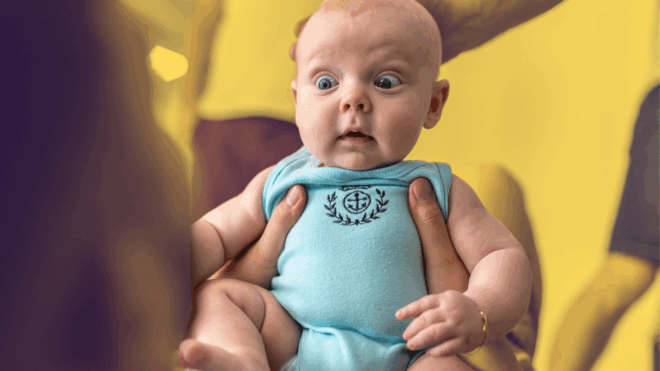Congratulations, you've survived the newborn phase. You've got the hang of diaper changing and feeding, you're getting some sleep (we hope), and you've even managed to start showering every day (okay, maybe every other). It's time to face the world and start socializing again. Maybe seek out a new mom group or a "playdate" group so you and your baby can make new friends.
Of course it's great for you to connect with other moms, but how important is it that your baby connect with other babies?
Probably not all that important.
While it's never too early to start playdates (especially for mom's sake), Carren Joye, author of A Stay-at-Home Mom's Complete Guide to Playgroups, says they don't have any real benefits for your child until the toddler years.
Here's what you should know depending on your baby's age:
- Up to 6 months. "At this point, the playdate is really more for the mom or dad," says Joye. "The baby doesn't get anything from it, but the parents get to get out." You've most likely been cooped up with the baby for the past couple months, so getting together with parents who have kids of the same age will give you a chance to swap stories, compare doctors, and chat about developments. Chances are, your baby won't get anything out of this (they're probably sitting on your lap and just absorbing all the new faces), but you'll be thankful for the new friends.
- 6 to 12 months. "This is when they can really start playing side-by-side," says Joye. "They like to watch other children or crawl around, so make this an activity date." Doing fun, interactive things like messy arts, clapping, or rolling over can get babies stimulated and participating. But still make this an individual activity for the most part. "At this age, they don't want to share," says Joye. So leave the group-involved games for later!
- 12 to 18 months. "Separation anxiety is a big factor at this age," says Joye. "So playdates at this age are really about showing your child that meeting new people isn't scary and that they can be reassured that mom will stay." The one-year mark is a great time to teach babies that being around other people does not mean that mom and dad are gone!
- 18 to 24 months. "They finally enjoy being around other children their age!" says Joye. Now it's time to start playing the interactive games. Have them roll a ball, let them play blocks together, or dance with each other. At this point, Joye says, you don't have to worry about sharing. The little ones are learning to empathize!
- Over 2 years. This is really where the child starts to benefit. "They've matured and they've been put in past situations where they've learned how to act and react," says Joye. Now, it's also helpful to have kids that are a little older, so don't be afraid to form groups of 2- to 4-year-olds. They can handle it. They can share their toys, freely walk over to a friend, and don't need mom and dad to stand beside them the whole time. They've grown independent and can take on their own adventures. Play on, kids!
When did your baby have his or her first play date?
Image via iStock.com/Christopher Futcher




